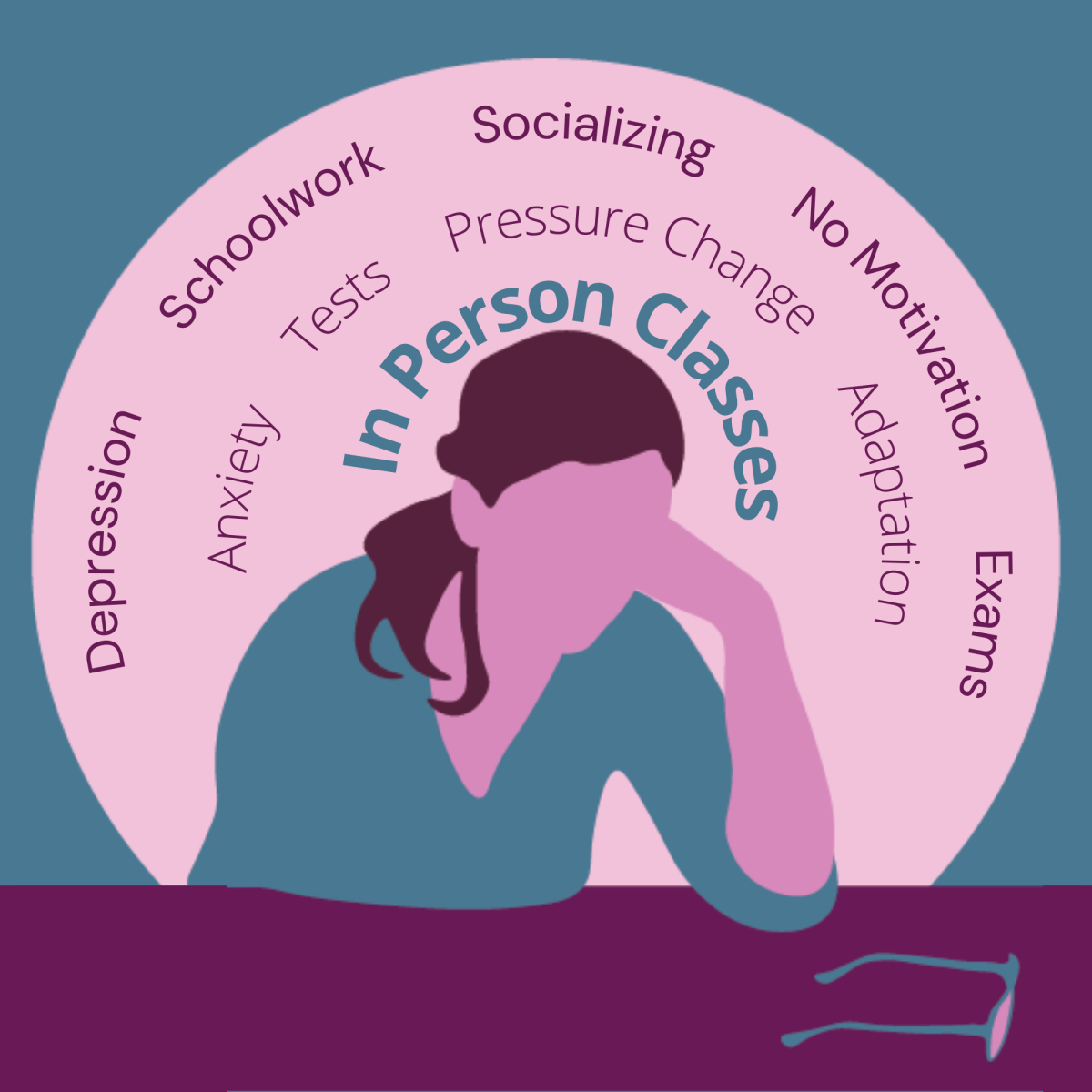Shortly after coming back to campus this fall, Destiny Little ’23 felt physically sick. The culprit: the stress of re-entering campus life in the midst of an ongoing pandemic.
“I thought it was something with my health, but my therapist told me it was symptoms of anxiety and stress,” Little said.
Little is not alone. Due to isolation, lack of socialization and virtual learning, the coronavirus pandemic has had negative mental health effects on many college students.
A fall 2020 University of Michigan study, called The Healthy Minds Study, assessed the mental health of 4,000 college age students mid-pandemic. It found that most students had major or minor depression or struggled with an anxiety disorder.
“We are seeing more students for counseling this year compared to last year,” wrote Greg Nicholls, Ph.D., director of Counseling and Psychological Services (CAPS), in an email to the Hawk. “This is a trend seen nationwide.”
Abra Verzola ’23 said the periods of online learning were especially hard on her motivation and ability to get through the day during the height of the pandemic.
“It was difficult to get out of bed and go through the motions,” Verzola said.
Now back on campus, Verzola said some days her stress and mental health challenges still pose challenges.
“I missed my classes Monday because I said that I wasn’t feeling well,” Verzola said. “But I couldn’t get out of bed for class that morning. My body was like, ‘No, I’m not going to attend.’”
A September 2020 survey of 2,051 college and high school students conducted by the organization Active Minds found that 16.76% of college students listed uncertainty as the most stressful thing they have experienced during the pandemic. Even now, Jessica Prekeris ’24, said that uncertainty lingers.
“Looking forward is overwhelming because there’s been so much uncertainty and I don’t know how things are gonna go,” Prekeris said. “Everything feels a little bit up in the air.”
However, Prekeris said the shift to fully in-person instruction has helped with social stressors.
“It’s definitely different [from] meeting people online, where it’s more impersonal,” Prekeris said. “It’s just a different experience, and I guess it’s easier seeing people face to face.”
Verzola said the return to a social setting has had a positive effect on her mental health as well.
“Spending time with people and doing stuff together, I didn’t realize how much I missed it until I got it back and how beneficial it is after a long day,” Verzola said.
Asia Whittenberger ’22 said the professors she knows in sociology and communication studies have been actively aware of mental health.
“[The professors] take class time every once in a while to check in with everybody and see what our struggles are, if it’s affecting our schoolwork within that course and just trying their best to help us do our best,” Whittenberger said.
For Verzola, while this attention to mental health is comforting, she said she is still hesitant to reach out to her professors about her mental health.
“There’s a vulnerability there that I think is scary because I don’t want my professors to be like, ‘Are they okay?’ all the time,” Verzola said. “I’m glad that they’re concerned for me, but also I don’t want to be seen as a victim.”
Kate Foley ’24 said while she has struggled to deal with her mental health challenges, she is working hard to address them.
“There have been ups and downs, but I’ve been really working towards my own independence in my studies, and my taking care of myself and [my] mental health,” Foley said. “It’s been quite a struggle, but we are working on it.”














































